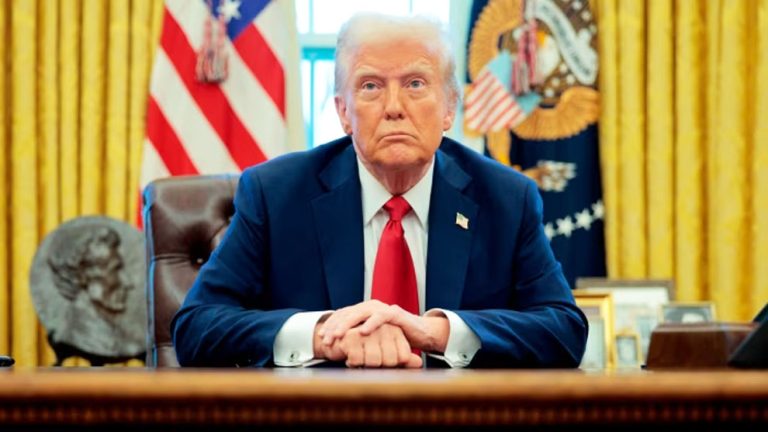US President Donald Trump issued a proclamation invoking the Alien Enemies Act of 1798, accusing Tren de Aragua of “perpetrating, attempting, and threatening an invasion of predatory incursion against the territory of the United States.”
He announced that members of the gang will be deported for engaging in “irregular warfare” against the United States. The Alien Enemies Act was last used during WWII to imprison Japanese-American civilians.
On Saturday evening, US District Judge James Boasberg in Washington, DC, issued a 14-day freeze to deportations covered by Trump’s proclamation, pending more legal arguments.
After lawyers informed him that planes carrying deportees had already taken off, Judge Boasberg issued a verbal order for the planes to return, according to US media, though this command was not included in his written ruling.
According to Reuters, the written notice was filed in the court docket at 19:25 EDT on Saturday (00:25 GMT on Sunday), but it is unknown when the flights carrying the alleged gang members left the United States.
In a court filing on Sunday, Department of Justice lawyers stated that the order did not apply since the deportees “had already been removed from United States territory”.
The Justice Department has appealed the judge’s decision.
The American Civil Liberties Union, which was participating in the case against the Trump administration, stated that the court order may have been breached.
The case presents constitutional issues because, under the US system of checks and balances, government entities are expected to follow a federal judge’s decision.
Venezuela denounced Trump’s use of the Alien Enemies Act, claiming it “unjustly criminalises Venezuelan migration” and “evokes the darkest episodes in the history of humanity, from slavery to the horror of Nazi concentration camps.”
Rights organisations blasted Trump, accusing him of utilising a 227-year-old legislation to sidestep due process.
Amnesty International USA commented on X that the deportations were “yet another example of the Trump administration’s racist targeting” of Venezuelans “based on sweeping claims of gang affiliation”.
Bukele, a Trump ally, stated that the detainees were promptly taken to El Salvador’s renowned mega-jail, the Terrorism Confinement Centre (Cecot).
The Salvadoran president stated that they will be imprisoned there “for a period of one year,” which might be “renewable.”
El Salvador’s Cecot jail is part of Bukele’s efforts to combat organised crime in the country.
Human rights groups have accused the newly built maximum-security institution, which can accommodate up to 40,000 people, of mistreating inmates.
The agreement between the United States and El Salvador is an indication of improved diplomatic relations.
El Salvador was the second country Rubio visited as the US’s top diplomat.
During that trip in February, Bukele made an initial offer to accept US deportees, claiming it would help finance the enormous Cecot facility.
The newest deportations during Trump’s second term are part of the president’s long-standing campaign against illegal immigration in the United States.
In January, Trump signed an executive order designating Tren de Aragua and MS-13 as foreign terrorist organisations.
He won over voters during the campaign, in part, by threatening to carry out the greatest deportation operation in US history.
While illegal border crossings have dropped to their lowest levels in decades since Trump took office, the Republican president has allegedly been upset by the slow pace of deportations thus far.











